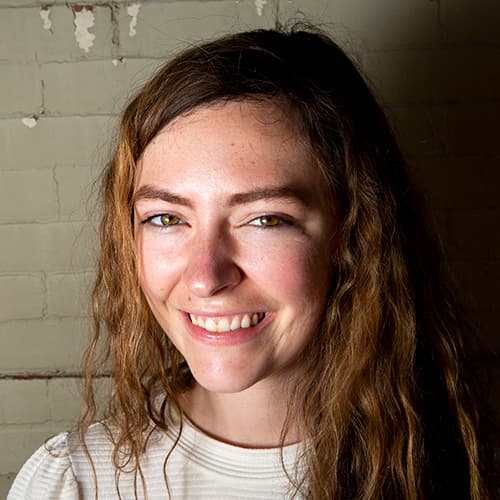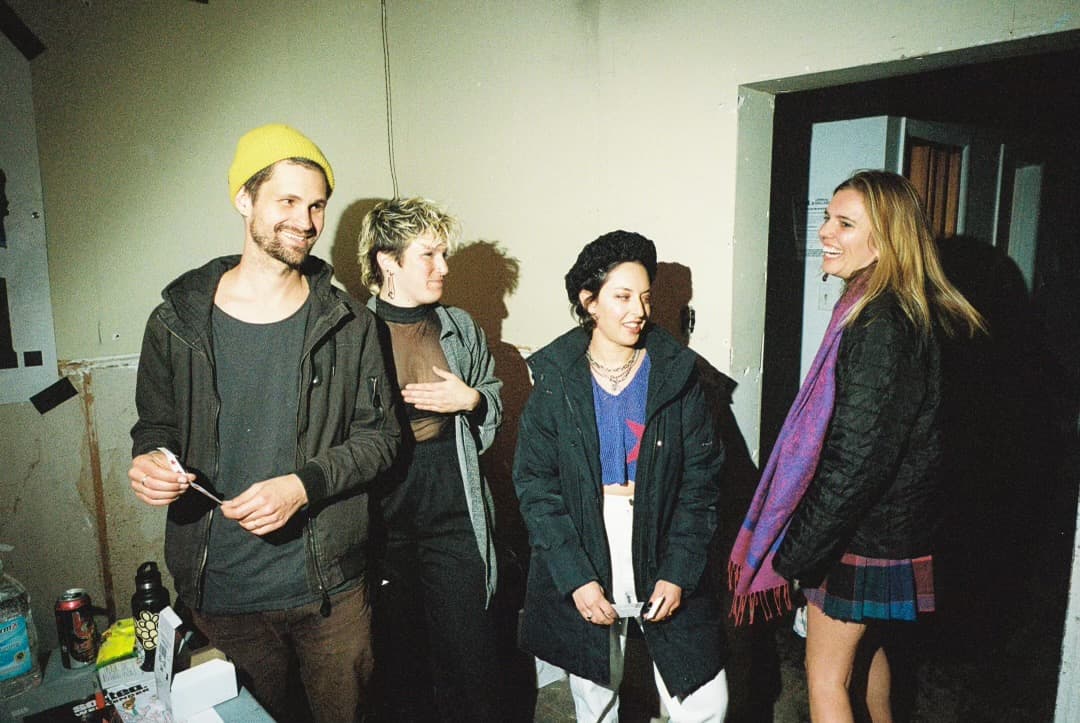This story contains mention of sexual assault.
As a bartender, performer and electronic dance music fan, Robbie Zelko is actively involved in Denver nightlife. Zelko also have roots in medical care dating to when they were 13, when they worked as an intern in the medical field. About three years ago, they became an occupational therapist.
Over time, Zelko's participation in both medical care and nightlife started to overlap. They helped set up various nightlife events around Denver and worked in medical tents at festivals.
Then, everything came to a head.
Zelko said that over the years, they had managed to build a protective shell at parties. They always had the right people around them, so that while they still dealt with harassment, they had managed to mostly stay safe. Until one night during the pandemic when Zelko said they were raped by someone at a party they were hosting.
"There was a lot that came out of that for me," Zelko said. "I had to personally readjust how I wanted to party. And it kind of was like, the buck stops here."
Zelko realized they needed to redefine what partying looked like for them.
"I absolutely love electronic music. I love going out. I still love partying and liberated spaces, and I need to feel safe in them personally," Zelko said. "I think a lot of people were also in that space of like, I can't have this happen anymore. There's just like a moment of, nope, I don't want this. I don't like the way that this is operating. And what do we do?"
Madeline Cohen, one of Zelko's friends, was also in that headspace. She had gotten into the electronic dance music scene about six years ago when she was living in Seattle, a city she says is more progressive than Denver.
"That dance nightlife space is more queer. So people have had to do that inner work and growth, just in general," Cohen said. "I benefited from there being harm reduction -- folks at parties that I could get resources from and receive support from."
Those harm reduction services -- support, resources and education about things like consent, boundaries and safe drug use -- are something Cohen has felt was missing in Denver. She felt it even more keenly after the pandemic hit.
"I think during that time, a lot of us reflected on our needs and what makes us feel comfortable, became more self aware," Cohen said. "Coming out of the pandemic, now that I'm in Denver and going to parties, it seems like there's a huge lack of this resource which kind of aligns with the world we live in now... There's a perspective of wanting to take care of each other, and take care of ourselves."
Cohen and Zelko started to discuss how they might spur the changes they felt Denver's party scene needs. That's how they came up with Liminal Spacers.
Liminal Spacers is a project dedicated to bringing harm reduction to Denver's parties.
Cohen and Zelko co-founded the group with the goal of making partying more safe for everyone, particularly marginalized people.
"In the context of a party space, what that means is having people present that you can get help from that either have physical resources on hand or can connect you with resources," Cohen explained. "It's also fostering a community of care, equity, accessibility, inclusivity.. Really, following a lot of the anti-discrimination policies and dialogue that's happened in our country in the past few years."
Harm reduction can look like helping someone to find their way home. It can mean being there to listen and respond if someone shares a negative experience they had with another person at a party. It can mean intervening if someone has a negative drug experience, or preemptively connecting individuals with resources like fentanyl test strips to help them consume drugs more safely.
Liminal Spacers is a passion project, fueled by volunteers who Cohen and Zelko dispatch to parties. They say that at this point, they don't necessarily ask for payment from the groups they work with, though they may ask for compensation to cover things like cost of supplies.
While Liminal Spacers do respond to situations as they arise at parties, a big priority is prevention.
The group makes sure that everyone who comes into a party space is aware of both ground rules and what resources are available to them.
"It's kind of like a nurturing mommy space. As long as everyone knows that we're in this together and we're all taking accountability, that's the goal," Zelko said. "The ideal is that we don't have to step in, we don't have to do all these different measures. People are really looking out for each other and especially when people are consuming [drugs and alcohol]. We can only be so self-aware when you're in an altered state. So just making sure that you have all you need in order to feel safe in that."

Dani Lopez-Cruz.
In January, for their first Liminal Spacers gig, Zelko and Cohen were invited to help out with Junk Drawer, a queer dance and techno house party in Denver run by a group of their friends.
"They understood that something was missing that allows people to feel safe and like they weren't alone in returning to the dance and nightlife scene," Cohen said. "Because it can be scary when you're used to your comfort zone, being home alone."
They attended Junk Drawer parties to see what the space looked like and what they might be able to help with. They then spoke with the organizers about what harm reduction looks like for Junk Drawer and what support they need at their parties, and came up with a plan for how to meet those needs given the resources they have.
Typically, after this initial consultancy process, Cohen and Zelko put together a team of volunteers and train them to help out at events. They make sure Liminal Spacers volunteers are present for the ticketing process near the front to so that guests know they're there for harm reduction. They hand out business cards to each attendee, informing guests about things like consent, drug safety and accountability, and establishing themselves as people guests can go to if they need help with something or if they feel unsafe.
The volunteers are also equipped with packs of harm reduction items like water, first aid supplies and gear that can be used to decrease discomfort and increase safety for partygoers. Cohen and Zelko keep Narcan and fentanyl test kits on hand for anyone who may need them to prevent an overdose event. Guests are made aware that there's a designated station they can visit to get these supplies.
Cohen stresses that most of the volunteers are not medically trained, though Liminal Spacers has its own training program on how to safely and sensitively approach various safety scenarios, which may include calling medical professionals. The business cards they hand out at the ticketing area also list local resources to call for help in case of emergency. That list is posted elsewhere around the event space.
"We're not EMTs or medical professionals. I'm not," Cohen said. "We do understand, if there's a situation that requires serious attention -- someone's hurt, someone was having a psychotic episode, maybe -- we're going to do our best to support them. But we are going to call professionals."
Zelko and Cohen say dance is a joyful and liberating experience, when it's safe.
"A lot of us have been stripped of the two of the most beautiful human qualities, which is music and dance," Zelko said. "Those are innately how our bodies want to be in the world. We make music with our mouths every day. We are dancing when we're breathing. So I think there is a lot to be said when we can all recognize that that's what we need."
Zelko said the dance scene has the rare quality of allowing people to be who they want to be.
"Relinquishing shame is something that comes to mind. There is no shame in who you are, and what you are, and how you want to present," Zelko said. "And I think that's a good baseline for growing as a human, is free of judgment and free of shame."
But Cohen said that in settings where people feel unsafe or uncomfortable, not everyone might be able to experience the sense of joy and connection essential to the dance scene. While electronic dance music and house music has roots in Black queer spaces, Cohen and Zelko say the local dance community has long been white- and male-dominated, and that because the space has been somewhat homogenous, there often aren't established protections in place for people who aren't a part of that demographic.
"I think a lot of femmes, people of color, queer people, trans people, marginalized communities, feel unsafe, because there aren't measures to balance out the presence of sexism, of misogyny, of racism," Cohen said. "For us, it's about providing this presence, and communicating to people that we prioritize their safety and comfort so that they can feel joy in the space."
Cohen says that community and empathy fostered in dance spaces can extend outside of those spaces.
"Dance spaces are an incubator of fighting oppression," Cohen said. "When we feel liberated in those spaces, it reflects outside of the community, people understand how to work with each other, they understand how to see each other and respect each other."













